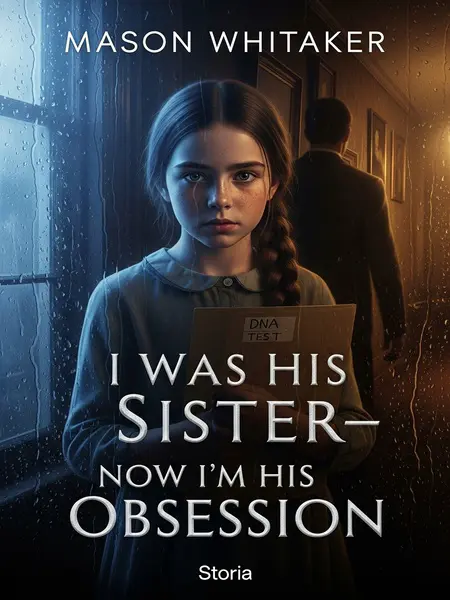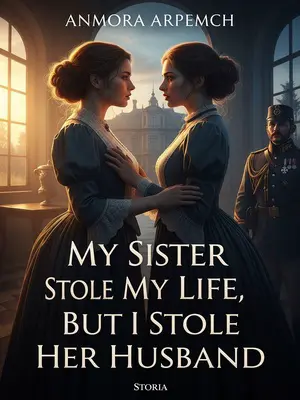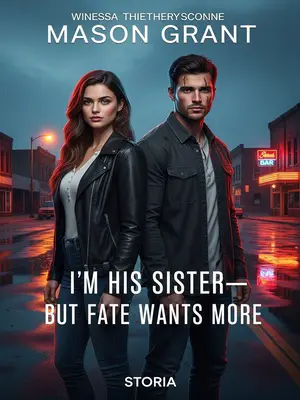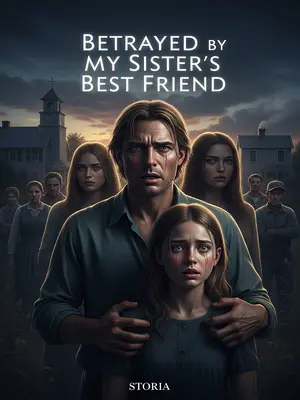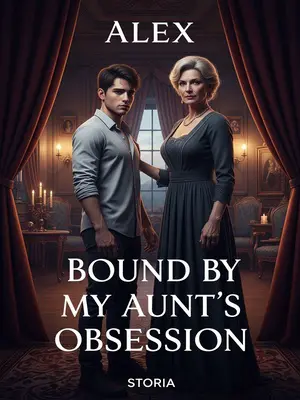Chapter 2: Switched at Birth, Cast Aside
After we got back to the Whitaker house, Dad heard I’d brought home a boy from the children’s center. He didn’t think much of it—if adopting a boy made his daughter happy, why not?
Dad was always generous, sometimes to a fault. He ruffled my hair and laughed, saying our house could use a little more noise. To him, it was just another way to spoil me.
But when Mr. Whitaker saw Mason’s face, he exchanged a look with Mrs. Whitaker, and they both got suspicious.
They stood side by side in the foyer, eyes flicking from Mason to each other. It was like watching a silent movie—one filled with old doubts and buried secrets. For a second, I thought Mrs. Whitaker might cry.
Money gets things done fast. The next day, the DNA results were in.
Dad made a few calls, and by breakfast, a manila envelope was waiting on the kitchen counter. The Whitakers didn’t believe in waiting for answers—not when they could buy them overnight.
Mason was biologically related to both Mr. and Mrs. Whitaker, but I wasn’t.
The truth hit like a thunderclap. Mason was their son. I was... someone else. But instead of throwing me out, they closed ranks, keeping the secret locked away. In public, we were still the perfect family.
Unlike my last life, though, the Whitakers kept the truth about my parentage a secret. Publicly, they just acknowledged Mason as their long-lost son.
No newspaper headlines. No big drama. They introduced Mason at a family barbecue, smiling for photos, calling him their miracle. I stood by his side, the loyal little sister, even as my world tilted under my feet.
I was called the family’s little lucky charm—the one who, by pure chance, found her brother.
Neighbors brought over casseroles, congratulating us on the reunion. Mrs. Whitaker told everyone I had a sixth sense for family, that I’d brought their son home with nothing but a hunch. For a while, I almost believed it myself.
From the day I brought Mason home until he was officially recognized, he stayed in a daze.
He drifted through the house like he was dreaming, touching everything with awe. He flinched when Dad raised his voice, but slowly, he began to relax. I watched as hope started to win out over fear, little by little.
A ten-year-old boy, suddenly told he had real parents and a little sister—his delicate face slowly blossomed into a beautiful smile.
He’d sit at the kitchen table, eyes wide as Mrs. Whitaker served him pancakes. He laughed at Dad’s corny jokes, played tag with me in the backyard. For the first time, he looked like a kid who belonged somewhere.
He would call me “little sis” in the sweetest voice, hold my hand to play in the backyard, catch butterflies for me, and help me braid my hair.
He was always eager to please, asking if I wanted to play or if I needed help with homework. He chased fireflies at dusk, his laughter echoing through the yard. Sometimes he’d sit behind me and braid my hair, his fingers gentle and careful.
“Little sis, I’m so happy now.”
His voice was soft, almost shy, but warm enough to make my chest ache. I wanted to believe it could last—that this version of Mason would stay forever.
He became more and more cheerful, while I grew increasingly quiet.
The more Mason flourished, the more I faded into the background. I stopped speaking up at dinner, stopped asking for attention. It was easier to disappear than to compete.
Mason’s original name was Jamie. Mr. Whitaker gave him the same name as in my last life: Mason Whitaker.
The paperwork was signed, the name changed. “Jamie” vanished, replaced by “Mason”—the name that would haunt me for years. Every time I heard it, my stomach twisted.
Every time the Whitakers called him by that name in this life, I would tense up instinctively.
It was like a trigger—one word, and all the old fears came rushing back. I forced myself to smile, to act normal, but inside, I was always bracing for the worst.
Back then, they’d helped their own son drug me.
That memory was sharp, unyielding. I remembered the taste of those bitter pills, the way my limbs went numb, the sound of the door locking behind me. Betrayal cut deeper than any knife.
The last thing I remembered before being locked away was Mrs. Whitaker’s choked-up voice:
Her words echoed in the dark. I could hear the tears in her voice, but they didn’t help. She was torn, but she chose her son over me. Every single time.
“Mason, after all, she’s the child we’ve raised for over ten years, you...”
She hesitated, the weight of a decade pressing down on her. I wanted to scream, to beg her to choose me, but my voice was gone.
“Mother, you said you’d make it up to me. All I want is her.”
His voice was cold. Final. No room for mercy.
I woke up from the nightmare again.
The room was dark. My heart hammered in my chest, sweat clinging to my skin. The sheets were twisted around my legs. For a moment, I didn’t know where—or when—I was. Then I remembered: this was my second chance.
In this country, you can’t just make someone disappear.
No matter how much I wanted to run, there were limits. The law would always find him, tie him to the Whitakers, bring him home. There was no escaping fate.
As long as he was alive, someone would eventually discover he was the Whitakers’ son.
It was bound to happen. Secrets never stayed buried forever. If I didn’t act, someone else would.
If it was going to happen anyway, I’d bring him home myself—and try to stop him from turning out so broken.
Maybe, just maybe, I could save us both. Maybe I could rewrite the ending this time.
I made other preparations too.
I started keeping a journal, tracking every change, every decision. I mapped out backup plans, memorized escape routes, learned how to disappear in plain sight. I wasn’t leaving anything to chance.
I started wearing more gray and black clothes. When middle school started, I picked out the biggest, thickest glasses I could find.
Baggy sweatshirts, jeans that swallowed me whole, hair yanked back in a messy ponytail. The glasses made my eyes look tiny, my face plain. I became invisible in the halls, just another quiet kid blending in.
The Whitakers doted on their lost-and-found son and gradually began to ignore me.
They showered Mason with gifts—new clothes, a shiny bike, private tutors. I watched from the sidelines as he became the center of their world. My absence went unnoticed.
So I hid my looks, which only got sharper as I grew, and went quiet and withdrawn—making myself nearly invisible.
I stopped wearing bright colors, stopped speaking up in class. I let my grades slip just enough to avoid attention, but not enough to get in trouble. It was safer this way.
